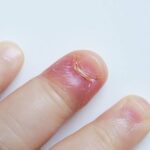According to the U.S. Census Bureau, around 22 million children have a parent who does not live in the household. That equals 26.5% of all children. Most often, it’s the father who is absent from the home, and may even be absent from the child’s life. People underestimate the impact that not having Dad around has on the well-being of children, and ultimately on society as a whole.
“More than any other project or cause that society needs to work on, we must work with passion and urgency to eliminate the systemic barriers to single-father involvement in the lives of our children,” said Dr. Joel N. Myers, founder of Dads’ Resource Center. “We must make the time to educate our neighbors about the overwhelming evidence – backed up by thousands of years of anecdotal evidence and numerous studies over recent decades that shows children develop much better when both of their parents are actively involved in their lives.”
Dr. Myers is on a mission to help shed light on the fact that there is a serious problem when it comes to child custody. The default of most courts is to simply give primary custody of the child to the mother, leaving the father pushed to the side and receiving very little time with his children. They often go from being a large part of the child’s life to seeing them on a limited basis as the court allows.
Children who do not get much involvement with their father are impacted in numerous ways, including in these 5:
- Being less physically healthy. Fewer children who are raised in nuclear families are considered to be in poor health. Research published in The Linacre Quarterly showed that 12% of children raised in a nuclear family were considered in poor health, compared to 22% of children of a single parent.
- Having less social-emotional development. Research published in the Annual Review of Sociology finds that there is strong evidence that father absence negatively impacts a child’s social-emotional development.
- Having less of a relationship with extended family. Divorce tends to lead to children having less of a relationship with the extended family of the noncustodial parent (i.e., grandparents, aunts, uncles, cousins). The child also loses many family traditions and celebrations.
- Experiencing more financial instability. According to research published in the journal The Linacre Quarterly, custodial mothers lose up to 50% of their household income and are more likely to receive public assistance. The median income of divorced mothers is only 47% of married-couple households. Children living with just their mother are more likely to be in poverty.
- Learning how to be a father. Children who grow up with an absent father tend to repeat the pattern, according to research published in the journal Parenting Science and Practice. The quality of the relationship and involvement a child has with their father tends to be passed down across generations.
“Mothers and fathers give different but equally important things to their children,” added Jeff Steiner, executive director of the Dads’ Resource Center. “Children need both their parents to be fully engaged as they are growing up to have the best chance of being successful in life. But, far too often the system unnecessarily prevents fathers from being able to do so.”
Dads’ Resource Center issued a report on the impact of dads not being involved in their children’s lives. The report, titled DRC NLSY97 Analysis Executive Summary, warned that children who do not grow up with their father in their household:
- Are less likely to graduate from high school or graduate from college.
- Are less likely to vote, donate to a charity or volunteer their time.
- Are more likely to have been convicted of a crime, use hard drugs, and smoke.
- Are more likely to have intercourse before the age of 17and to need mental health treatment.
- Make less money per year as an adult and more much likely to use government welfare programs.
Dads’ Resource Center was started by Dr. Myers, a father of eight and the founder and CEO of AccuWeather. The mission is to help combat the issues associated with children growing up without their fathers in the home. At its heart, the center is a child advocacy organization that aims to ensure that each child has the appropriate involvement and contributions from both parents.
Dads’ Resource Center has been established to benefit children of separated or divorced parents by advocating the importance of fathers having adequate opportunities to fulfill their role of fatherhood. The group helps get information regarding the issues out to the public and works with fathers to help make improvements. To get more information, visit the site at: https://dadsrc.org.
About Dads’ Resource Center
The Dads’ Resource Center is committed to providing education, resources and advocacy for dads who are separated or divorced and are determined to uphold their sacred responsibility as fathers. The Dads’ Resource Center was founded by Dr. Joel N. Myers, who is the founder and CEO of AccuWeather. His own experience as a single father led him to start the group. To get more information, visit the site at: https://dadsrc.org.
Pennsylvania Parenting Magzine is the ultimate resource for parenting news, opinions, articles, and events across the commonwealth of Pennsylvania.
We offer moms and dads stories that are timely, informative and reader-friendly on important issues such as childcare, family life, education, adolescence, motherhood, and teens. You’ll also find fun, easy and inexpensive family activities and events.
Pennsylvania Parenting Magzine reaches about 5,000 visitors per month. Our email database is comprised of 10,000+ moms and dads, while our social media reach is over 8,000 connections across the country.
For more information, please contact our managing editor, Daniel Casciato, at writer@danielcasciato.com.






